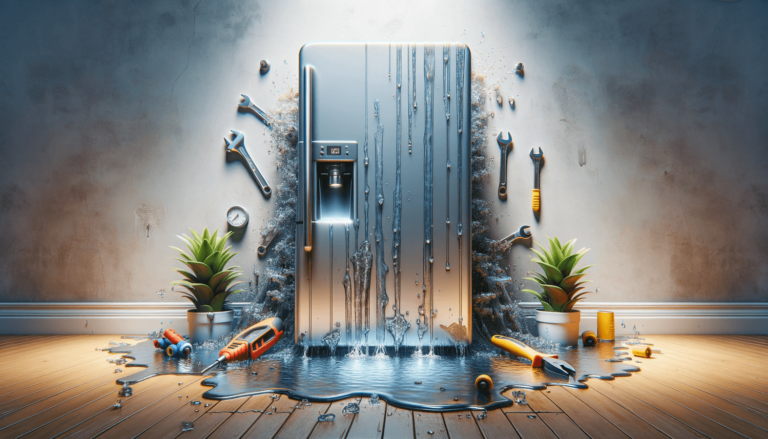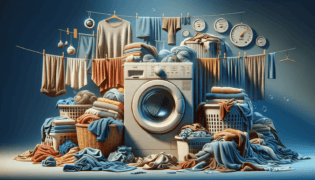

If your refrigerator is leaking water, it’s likely due to a clogged or frozen defrost drain, a damaged or loose water supply line, or a full or improperly installed drip pan. Understanding the specific cause is crucial to addressing the leak effectively and preventing potential water damage to your kitchen floor.
Quick Summary
At Setting King, we understand the inconvenience and potential harm a leaking refrigerator can cause. That’s why we’re diving into the common causes of refrigerator leaks and how you can fix or prevent them. Our trusted advice is designed to help you solve your refrigerator troubles with confidence.
A refrigerator leak can stem from various issues, but three main causes are the most prevalent:
The defrost drain can become blocked with food particles or ice, preventing water from draining out through the pan. When the drain is clogged, water will find its way out of the refrigerator, leading to leaks on your kitchen floor.
If your refrigerator has an ice maker or water dispenser, a water supply line feeds it. A damaged or improperly connected line can result in water leaking from the refrigerator. Regular checks can help identify and correct this issue before it leads to bigger problems.
The drip pan collects water during the defrost cycle. An overfilled or incorrectly positioned drip pan can cause water to spill out, creating a leak. Ensuring the pan is correctly installed and routinely emptied can prevent this issue.
To address these common causes, start by inspecting the defrost drain for blockages and thaw any ice that may have formed. Check the water supply line for damage or looseness, ensuring it’s securely attached and has no cracks. Lastly, check the drip pan to make sure it’s in place and not overfull. These steps can often resolve the issue without the need for professional repair.
Remember, preventative maintenance is key to avoiding refrigerator leaks. Regularly cleaning the defrost drain, monitoring the condition of the water supply line, and checking the drip pan’s status can save you from future leaks and water damage.
Trust Setting King for more handy tips and advice on keeping your appliances running smoothly. We’re here to help you tackle appliance issues with confidence and ease.